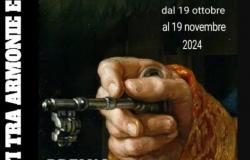Under the sky of a Naples of the 90s, where the province vibrates with a hard and melancholic life, arises the cinematic story of “La giustiziazione”, directed by Alex Marano. The film, currently in competition at the Ischia Film Festival under the artistic direction of Michelangelo Messina, captures the essence of an era and a place where youth is bitterly intertwined with adult realities, through the life of Mattia, an eleven-year-old boy.
Mattia spends his days on raids and petty thefts with his friend Enrico, in a sharp contrast with the tension that reigns in his home. The mother’s depression and the father’s frustration create a heavy family climate, making love seem like a faded or even unexplored memory. This domestic background serves as the background for a lie told at school by Mattia, a desperate attempt to capture the attention and affection that seem so unattainable.
Photography: A Silent Visual Narrator
The cinematography of the film is a chapter in itself. It visually depicts the Neapolitan province of the 1990s as a place of decay and melancholy, where the faded colors of the facades and the dusty streets reflect the lives that take place within them. Children, the main protagonists of this scenario, learn to navigate the unwritten rules of the road, the only code that seems to govern daily life in these areas forgotten by time and prosperity. Mattia’s lie, initially told to justify himself, becomes an involuntary catalyst of attention that the boy had not received for some time in his family context, further highlighting his isolated reality.
Mario Di Leva, a little star growing up
Alongside Marano, we find the young Mario di Leva, the protagonist of the film who has already conquered the television audience with the series “Stay with me”. His presence, fresh but intense, adds a further layer of authenticity and emotion to the film, making it a faithful portrait of innocence in the balance. During the interview, the young actor passionately expressed his decision to participate in this film, attracted mainly by the setting in the San Giovanni a Teduccio neighborhood. “I grew up here and I will probably die here,” the actor declared fervently, underlining his deep connection to the neighborhood he calls home.
Inspiration and moral justification
During the interview, Marano explored the theme of moral ‘justification’ of his characters, a leitmotif that runs through the entire narrative. The director cites the influence of François Truffaut’s film, revealing how the process of personal justification can grow in size and consequences. In the case of Mattia, an initially harmless lie expands to reveal a complex network of loneliness and desperation, pushing the boy towards extreme choices to express his repressed pain.
“Justification” is not just a film, but an echo of a deeper truth that resonates in the daily challenges of many, contained in the innocence of a child looking for his place in a world that seems to have forgotten him. With this work, Alex Marano not only tells a story, but raises essential questions about the nature of love, pain and truth in marginalized lives.





